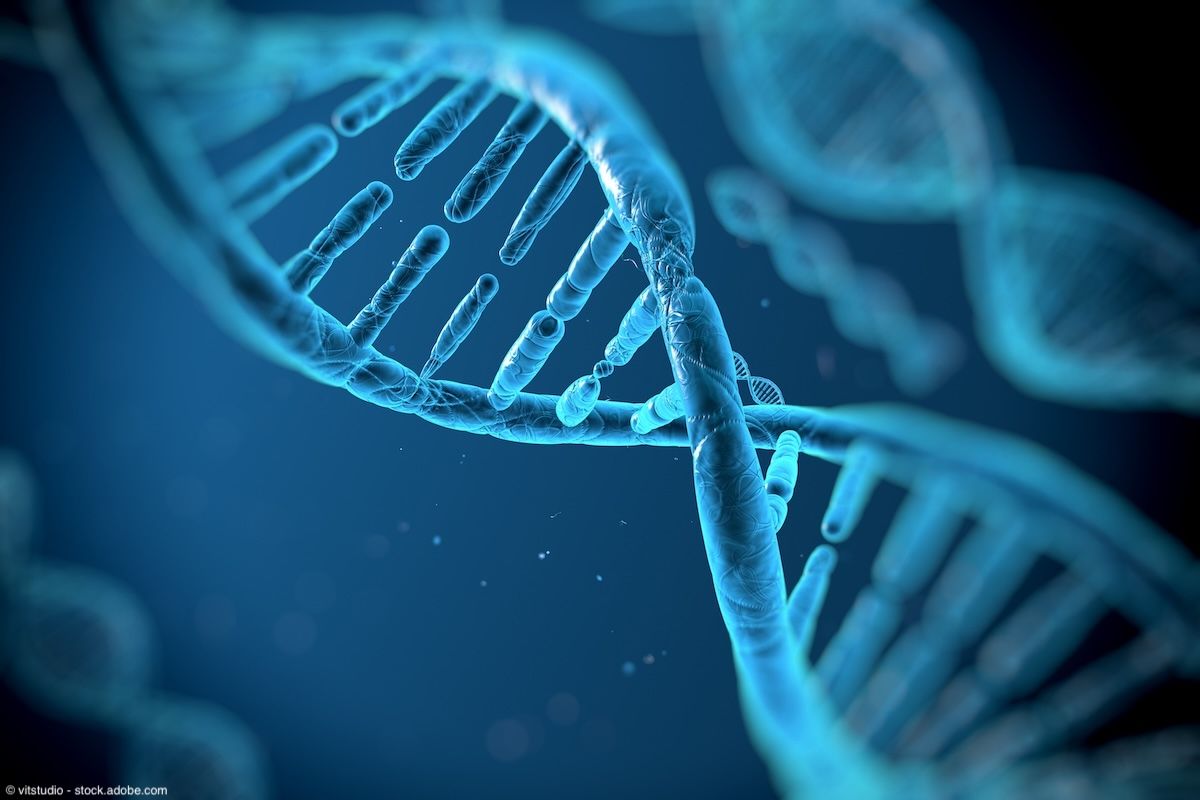Although national guidelines recommend genetic counseling for all patients with early-onset or bilateral renal cell carcinoma (RCC), the referral rate remains low, according to recent findings published in Urologic Oncology.1 These findings have profound implications, as genetic evaluation can inform treatment decisions for kidney cancer and determine risks for other malignancies.
The study, which was conducted by investigators at Penn State College of Medicine in Hershey, Pennsylvania, assessed genetic counseling rates among 123 patients who met the criteria for genetic evaluation. Patients were identified via a retrospective review of electronic medical records. All patients were treated between 2017 and 2022 for early onset or bilateral RCC.
Overall, the study findings suggest a potential missed opportunity for urologists and other health care professionals to recommend genetic evaluation, as many patients who were referred actually went through with genetic counseling.

Senior author of the study, Hong Truong, MD, MS, recently sat down with Urology Times® to outline key findings and implications from the study. Truong is a urologic oncologist at Memorial Sloan Kettering Cancer Center in New York, New York.
Urology Times: Could you describe the background/rationale for this study?
Truong: We know that early onset and bilateral kidney cancer often signals an inherited cancer syndrome, regardless of personal or family history of cancer. The national guidelines from both the American Urological Association (AUA) and the National Comprehensive Cancer Network have recommended genetic evaluation for patients with early onset and bilateral multifocal kidney cancer since 2017. There are also other [recommendations], such as [patients with] pathology that are suggestive of an inherited cancer syndrome or those with a family history.
In clinical practice, I suspected that many eligible patients were not being referred for counseling or testing. We have seen previous studies that have shown low uptake of cancer genetic services across many types of cancers. We wanted to look at real-world data in kidney cancer [and see]: Are we following through with these guidelines? If not, where are we falling short of following the guidelines?
Urology Times: What were the key findings from this analysis?
Truong: In this study, we specifically only looked at patients with early onset and bilateral kidney cancer, because we figured those are 2 easy criteria to follow without even taking a detailed family history. All these patients, 100% of them, should be referred for genetic evaluation based on guidelines. In our cohort, we identified 123 patients eligible for testing based on these criteria.
Only one-third of the patients, 34%, were referred for genetic counseling. Now, interestingly enough, of those patients who were referred for genetic counseling, the majority of them completed genetic counseling—about 76% of the people who were referred completed genetic counseling, and about 84% of those who completed genetic counseling went through with testing.
Among those who were tested, almost 30% had a pathogenic or likely pathogenic germline variants in a cancer predisposition gene, and 8% of those genes directly linked to kidney cancer, such as von Hippel-Lindau (VHL) and fumarate hydratase genes.
Urology Times: You mentioned that nearly 30% of tested patients were found to have pathogenic or likely pathogenic variants. How do those findings influence treatment decisions, surveillance strategies, and family counseling for kidney cancer?
Truong: Finding a pathogenic variant in cancer predisposition genes have a lot of real-life implications. At the patient level, typically, these genes not only predispose them to kidney cancer, but also predispose them to other types of cancer. With VHL, we know that can also predispose them to pheochromocytomas, central nervous system tumors, and hemangioblastomas, so there’s [significant] implications in term of cancer screening, early detection, and treatment.
There are also treatment implications. For certain hereditary kidney cancers, we now have targeted therapy for these patients. For example, for patient with VHL-associated cancer, belzutifan [Welireg] is one of the FDA-approved medications to treat patients with VHL-associated tumors, to defer surgery. In Hereditary Leiomyomatosis and RCC (HLRCC), there’s exciting research that’s recently published from the National Cancer Institute group led by Ramaprasad Srinivasan, MD, PhD, in that space.
Then there’s also an effect on the family member. There’s cascade testing, meaning that for a patient with cancer found to have a germline predisposition, now their family member can also get tested—those who haven’t developed cancer themselves. A lot of the genetic companies will cover family testing of the index patients for free within a certain time point. Those are all implications for the patients and for their family.
Urology Times: Another key point was that despite national guidelines, only one-third of eligible patients with kidney cancer were referred for genetic counseling. From your perspective, what are some of the main barriers that are preventing urologists from consistently referring these patients?
Truong: We did not study that in this study, but there are some major barriers that I can imagine. The first one is under-referral from urologists. This may be a knowledge gap. Urologists may not be aware that there are guidelines to refer these patients, so there may be a knowledge gap in their practice. There could also be competing clinical priorities. You see patients during a very difficult time in their life; they were just told that they have a kidney tumor, so the conversation is geared more toward, what can this be? When can we get it treated? What are the treatment options? So, genetics becomes less of a priority.
A patient may not be interested in genetics referral, and so therefore the urologist might have discussed it, but a referral wasn’t placed because the patient turned it down. Our study wasn’t designed to capture that nuance. Now, that could be also patient-level challenges. Patient disinterest may be because they have concern about cost. They may have logistical challenges, like paperwork or health literacy, that may prevent them from agreeing to genetic evaluation. There may also be some system barriers as well—wait time, the ability to access a genetic counselor—and so those all may have contributed to under referral for genetic evaluation.
Urology Times: Have there been any promising interventions to address some of this underutilization?
Truong: Nationally, there are efforts to help to improve patient access to genetic counseling and precision oncology as a whole. In terms of the knowledge gap, we are conducting instructional courses. We have been doing that for 3 years at the AUA Annual Meeting to teach about genetics and genomics of urologic cancer to help improve the knowledge gap.
In terms of the research front, there have been electronic health record-based prompts, so automatic alerts during clinic visits to help alert physicians to patients who may meet criteria for certain tests. [This could be] genetic evaluation, but there could be other resources that that patient may be eligible for. That’s an effective use of the electronic health system. There is telegenetics, virtual counseling, to reach patients who may not be able to access genetic resources and shorten the wait time for patients. There are also creative ways, [such as an] AI [artificial intelligence] integrated system, where patients can interact with an AI [chat] to answer some of their questions and concerns about genetic evaluation. So, there is research going on within that space.
Urology Times: Is there any future work that’s planned based on the findings from this study?
Truong: There are a couple of research ideas and projects that were generated from this study. One is the question that you asked earlier: What causes the under-referral for utilization of genetic evaluations? Although our study currently wasn’t designed to answer that, in our follow-up study, we want to do surveys and engage with urologists and medical oncologists who see these patients and assess their knowledge base, and also understand how to streamline referrals to help patients get quicker access to these services.
We’re also looking at ways to counsel patients. Does every patient who is expected to have a genetic predisposition have to meet with a genetic counselor upfront? Not necessarily. I think we can streamline some of that to video counseling and then have the patient get tested, and if they’re found to have a germline mutations or a variant of unknown significance, then they can meet with the genetic counselor on the back end.
Urology Times: Is there anything else that you’d like to add?
Truong: I just want to highlight that this really is a missed opportunity for patients. We know, based on this study, that when patients get referred, they almost always follow through with genetic evaluation. The genetic findings have real clinical and family implications. It’s very important for us who take care of patients with kidney cancer, and urologic cancers as a whole, to close the referral gap so we can transform patient care, personalize patient care, and allow them to access resources that they otherwise wouldn’t be able to have, such as targeted therapy and personalized screening based on genetic profiles.
REFERENCE
1. Makarova E, Bakhl K, Demirsoy S, et al. Utilization of genetic evaluation in patients with kidney cancer who meet guidelines for genetic referral. Urol Oncol. 2025:S1078-1439(25)00238-8. doi:10.1016/j.urolonc.2025.06.009

